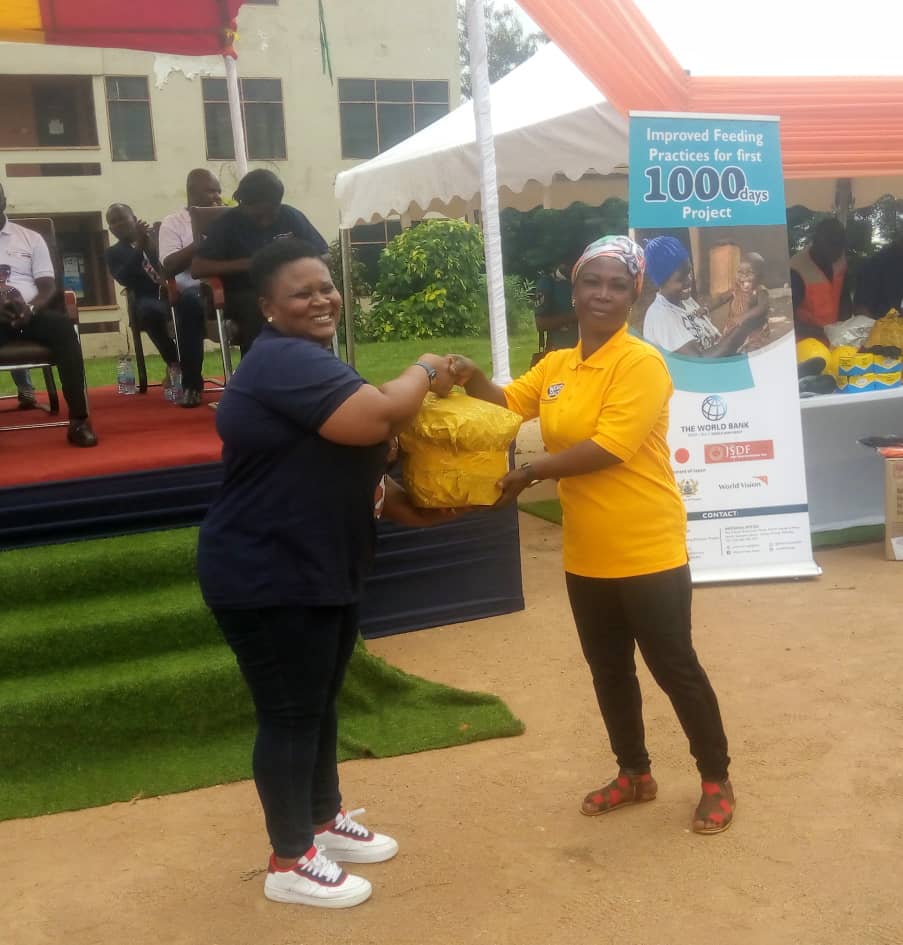By Florence Afriyie Mensah
Effiduase (Ash) July 15, GNA – Dr Justice Ofori-Amoah, Sekyere-East District Director of Health, says the nutrition practices in the area have seen a significant improvement leading to the reduction in malnutrition.
The development, he said, was attributable to the implementation of the Improved Feeding Practices (IFP) for the First 1000 Days’ Project.
“The fallout from this initiative is that the district has seen quality antenatal care and child healthcare delivery in all partner health centers regarding nutrition practices, better child growth and birth outcomes,” he noted.
Dr Ofori-Amoah, in an interview with the Ghana News Agency (GNA), on the sidelines of the official closure of the district’s version of the Project, at Effiduase in the Ashanti Region, said the authorities were elated at the positive results.
The Japan Social Development Fund (JSDF), through the World Bank, is funded the Project implemented by the World Vision Ghana (WVG).

It targeted three districts – Kassena-Nankana West, Sekyere-East, and Kintampo-South, all of which are beset with high cases of malnutrition and anaemia.
It sought to encourage good household feeding practices through an increase in the intake of macronutrients by children and pregnant mothers.
Dr Ofori-Amoah lauded the WVG for its technical support in the successful implementation of the initiative.
Using an innovative approach, the Project, he said, achieved the intended goals by introducing new skills and knowledge in supplementary feeding, child healthcare and hygiene through advocacy and training.
The vision is in tandem with Ghana’s long-term agenda of increasing the percentage of children fed at the minimum acceptable diet from 13 per cent to at least 30 per cent by 2025.
The health authorities believe that the Project came at an opportune time when the nation is trying to develop maternal and child health to an appreciable standard.
It presents the country with the opportunity to efficiently address the challenges in the nutrition sector.
The United Nations Children’s Fund (UNICEF) estimates that, in Ghana, close to one in every five children under five years is stunted, while one in every 10 children under five is underweight.
It reports that almost two in three children between six months and two years of age, are not fed food that supports their rapidly growing bodies and brains.
“Although the health of children in Ghana has improved in recent years, the current rates of malnutrition remain above internationally acceptable levels,” says the UN body.
Mr Richard Okai, West Africa Regional Strategy, Evidence and Learning Director for the Project, thanked the authorities for the varied roles they played to realise the goals as pertained to the district.
He welcomed the collective purpose and strong partnership between the WVG and key players, including the Ghana Health Service, Ministry of Food and Agriculture, Office of the District Chief Executive and District Coordinating Directorate.
The Project, he hinted, was able to reach out to a significant number of communities with extension services.
The authorities also trained village-based entrepreneurs on sale of nutritious supplements using the ‘Koko Plus’ formula, as well as mother-to-mother support group facilitators.
Additionally, they were able to sensitise ‘male champions’ on dietary diversification, with a donation of 300 bicycles to ensure the safeguarding of children.
The Sekyere-East closure programme was characterised by the presentation of plaques and awards to deserving beneficiaries as well as the implementing partners, sharing of testimonies on the Project benefits, and an exhibition session on food products.
World Vision Ghana, in pursuance of the Project activities, supported the district with medical equipment.
These included weighing scales and infantometer, to enhance the delivery of health services to babies and pregnant women.
The Reverend Emmanuel Aning, a beneficiary of the Project, in an interview, said his income generation had shot up, following his involvement in the growth of sweet potato seedlings – a knowledge acquired through nutrition skills training.
Two other female beneficiaries, Ms. Abena Adoma and Madam Sophia Owusu Mensah, indicated that the sale of ‘Koko Plus’ and the addition of the nutritious product to the daily meal of their children, had earned them much income and improved the health of their children, respectively.
“We will continue to sell Koko Plus and make a living out of it,” they told the media.
They were appreciative of the nutrition skills training and intense advocacy for the consumption of orange-fleshed sweet potatoes (OFSP), poultry products, ‘Koko Plus’ and green leafy vegetables.
GNA